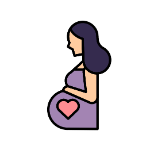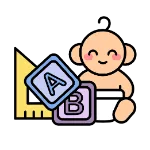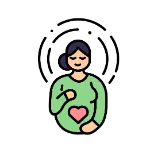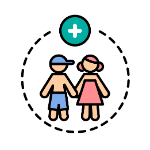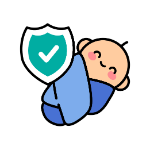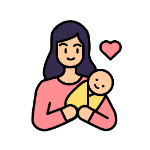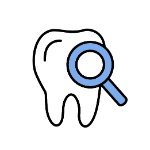
Mental Health
Let's Learn About Prenatal Depression And How To Get Rid Of It?
7 min | Updated on 30-03-2023 by HappyPreggie
Depression is a serious condition that can have a significant impact on one's daily life. Prenatal depression occurs when a woman feels depressed during her pregnancy. During pregnancy, most women have emotional ups and downs, which is entirely normal. However, if feeling blue or melancholy for a few days becomes a regular occurrence, and the sorrow, worry, and other unpleasant feelings begin to interfere with daily living, depression may be present.

(Image credits to Canva)
Depression during pregnancy is quite prevalent. Depression affects about 13% of pregnant women and new moms. According to some analysts, the proportion might be far higher. Prenatal depression, fortunately, responds well to therapy.
Prenatal depression, also known as perinatal depression, is depression that affects women when they are pregnant. Prenatal (or perinatal) depression, like postpartum depression, isn't merely a sense of melancholy; moms who suffer from it may also feel stressed and agitated.

(Image credits to Canva)
It's probable that you've heard about postpartum depression, which is a good thing. The more postpartum depression is spoken about and understood, the more mothers will seek treatment in order to feel better and enjoy full and healthy lives as new mothers.
Prenatal depression, on the other hand, is a maternal mood condition that has received far less attention than it deserves. Although prenatal depression is treatable, many expectant moms are unaware that it exists and hence do not seek therapy.
Here's everything you need to know about prenatal depression, including how frequent it is, what signs to watch for, and, most importantly, how to get assistance.
Every mother's prenatal depression manifests differently, and you may even have distinct symptoms from one pregnancy to the next. It's critical to realize that if you're feeling overwhelmed by your emotions, unable to function in your daily life, or just "off," you should seek help from a trusted loved one or a medical specialist.

(Image credits to Canva)
If you've had any of the following symptoms for at least two weeks, you may have been going through prenatal depression:

(Image credits to Canva)
Obsessive-Compulsive Disorder Symptoms
Panic attacks on a regular basis
Fear of suffering a panic attack on a regular basis
Several risk factors for pregnancy depression have been identified, including:

(Image credits to Canva)
You're more likely to feel depressed now that you're pregnant if you've previously suffered from depression or anxiety, such as during a prior pregnancy or after the delivery of a previous child. If you're experiencing anxiety during your pregnancy, you're more likely to be diagnosed with prenatal depression.
You have a higher chance of developing depression if it runs in your family, and you're more likely to get it at a younger age. Prenatal depression is more common in women whose partners have been diagnosed with depression or another mental disease.

Dealing with traumatic circumstances during pregnancy, such as financial difficulties, the termination of a relationship, the death of a close friend or family member, or the loss of a job, can lead to depression. Smoking, drinking, or taking stress-relieving medicines that haven't been prescribed by a doctor increases your chance of pregnant depression, as well as health concerns for your baby.
Pregnancy depression is more likely if there are issues in the pregnancy, such as birth deformities in the infant or being pregnant with multiples. Having previously had a miscarriage or a traumatic birth raises the chance of depression during a subsequent pregnancy.
The most essential thing to remember regarding pregnancy depression is that help is available and that feeling better is achievable. The most common reason women suffer with prenatal depression for so long is that they do not seek therapy, are unaware that treatment exists, or are too embarrassed to ask for help. The most frequent treatments for prenatal depression are listed below.

(Image credits to Canva)
Your healthcare physician is likely to recommend talk therapy (psychotherapy) as the initial treatment choice for you. If travelling to an appointment is problematic for you, many therapists will see you electronically these days. Cognitive–behavioural therapy (CBT) and interpersonal psychotherapy are two typical treatment techniques for pregnant depression (IPT).

(Image credits to Canva)
Psychotherapy may need to be combined with medication at times. The great majority of depression drugs for pregnant women are thought to be safer than the risk of untreated disease. Speak with your doctor about several choices that could work for you.
Exercise: Yoga, meditation, gentle exercise, journaling, and mindfulness activities are all effective ways to cope with negative emotions.
Prenatal Depression Support Groups: Finding prenatal depression support groups might also be therapeutic. Postpartum Support International will help you find such organizations. There are also several online support groups.
Self-Care: Remember to set some time for yourself. We parents (and soon-to-be moms) frequently spend so much time giving to others that we forget to nurture ourselves and our souls. Make time for yourself at least once a week. Even an hour or two of doing something you enjoy, such as reading your favourite book alone, can be beneficial to your mental health.
Communication: Have a conversation about it. Having loved ones with whom you may "vent" is extremely vital, in addition to your therapist and/or support group. Seek out individuals who will listen to you without condemning you and who are concerned about your emotional well-being.
We realize how tough it is to talk about depression, especially when you are depressed yourself. It's difficult to think of adding another item to your "to-do" list when you don't have any energy or are always upset. However, if you feel you may be depressed, you should get professional help.
If you loved reading this article you may also like reading- 10 Ways To Take Care Of Your Mental Health During Pregnancy or you can also read- Are You Pregnant And Fasting During Ramadan? We Have Got Some Tips For You That You Need To Know!
(Image credits to Canva)
Depression during pregnancy is quite prevalent. Depression affects about 13% of pregnant women and new moms. According to some analysts, the proportion might be far higher. Prenatal depression, fortunately, responds well to therapy.
What Is Prenatal Depression?
Prenatal depression, also known as perinatal depression, is depression that affects women when they are pregnant. Prenatal (or perinatal) depression, like postpartum depression, isn't merely a sense of melancholy; moms who suffer from it may also feel stressed and agitated.
(Image credits to Canva)
It's probable that you've heard about postpartum depression, which is a good thing. The more postpartum depression is spoken about and understood, the more mothers will seek treatment in order to feel better and enjoy full and healthy lives as new mothers.
Prenatal depression, on the other hand, is a maternal mood condition that has received far less attention than it deserves. Although prenatal depression is treatable, many expectant moms are unaware that it exists and hence do not seek therapy.
Here's everything you need to know about prenatal depression, including how frequent it is, what signs to watch for, and, most importantly, how to get assistance.
Symptoms of Depression in Pregnancy
Every mother's prenatal depression manifests differently, and you may even have distinct symptoms from one pregnancy to the next. It's critical to realize that if you're feeling overwhelmed by your emotions, unable to function in your daily life, or just "off," you should seek help from a trusted loved one or a medical specialist.
(Image credits to Canva)
If you've had any of the following symptoms for at least two weeks, you may have been going through prenatal depression:
- Loss of interest in everyday tasks, or a feeling that nothing is satisfying or enjoyable anymore
- Every day, you feel "blue," "sad," or "empty" for the most of the day.
- Low self-esteem, such as the belief that you will fail as a parent
- Constantly crying
- Feeling upset or agitated to the point of rage
- Are you worried about your child?
- Finding it difficult to focus or make decisions?
- Low energy or acute exhaustion that does not improve with rest
- Having changes in your eating or sleeping patterns, such as the want to eat or sleep all of the time or the inability to eat or sleep at all
- Feelings of remorse, worthlessness, or hopelessness are overpowering.
- Having the impression that life isn't worth living.
Symptoms of Anxiety During Pregnancy
(Image credits to Canva)
- Anxiety symptoms during pregnancy differ depending on the kind of condition, such as generalized anxiety disorder, obsessive-compulsive disorder, or panic disorder.
- Generalized Anxiety Disorder Symptoms
- Excessive and difficult-to-control concern
- Irritability
- Muscle pains and tension
- Sleep habits that have been disrupted
- Inside, you're restless.
- Fatigue
- Concentration issues
Obsessive-Compulsive Disorder Symptoms
- Thoughts that recur, endure, and are invasive
- Compulsions to distract yourself from negative thoughts by engaging in repetitive thoughts or activities
Panic attacks on a regular basis
Fear of suffering a panic attack on a regular basis
Risk Factors For Depression During Pregnancy
Depression can strike at any time in one's life. However, women are diagnosed with depression twice as often as males, presumably due to hormonal swings associated with menstruation, pregnancy, and delivery.Several risk factors for pregnancy depression have been identified, including:
#1 Personal Experience With Depression or Anxiety
(Image credits to Canva)
You're more likely to feel depressed now that you're pregnant if you've previously suffered from depression or anxiety, such as during a prior pregnancy or after the delivery of a previous child. If you're experiencing anxiety during your pregnancy, you're more likely to be diagnosed with prenatal depression.
#2 If Depression Runs In The Family
You have a higher chance of developing depression if it runs in your family, and you're more likely to get it at a younger age. Prenatal depression is more common in women whose partners have been diagnosed with depression or another mental disease.
#3 Stress
Dealing with traumatic circumstances during pregnancy, such as financial difficulties, the termination of a relationship, the death of a close friend or family member, or the loss of a job, can lead to depression. Smoking, drinking, or taking stress-relieving medicines that haven't been prescribed by a doctor increases your chance of pregnant depression, as well as health concerns for your baby.
#4 Lack of Support
You're more likely to be depressed if you're having your baby alone, or if you feel lonely or receive little support from friends or relatives. Depression can also be exacerbated by interpersonal issues or an unsupportive partner.
#5 Complications of Pregnancy
Pregnancy depression is more likely if there are issues in the pregnancy, such as birth deformities in the infant or being pregnant with multiples. Having previously had a miscarriage or a traumatic birth raises the chance of depression during a subsequent pregnancy.
Treatment
The most essential thing to remember regarding pregnancy depression is that help is available and that feeling better is achievable. The most common reason women suffer with prenatal depression for so long is that they do not seek therapy, are unaware that treatment exists, or are too embarrassed to ask for help. The most frequent treatments for prenatal depression are listed below.
#1 Therapy
(Image credits to Canva)
Your healthcare physician is likely to recommend talk therapy (psychotherapy) as the initial treatment choice for you. If travelling to an appointment is problematic for you, many therapists will see you electronically these days. Cognitive–behavioural therapy (CBT) and interpersonal psychotherapy are two typical treatment techniques for pregnant depression (IPT).
#2 Medication
(Image credits to Canva)
Psychotherapy may need to be combined with medication at times. The great majority of depression drugs for pregnant women are thought to be safer than the risk of untreated disease. Speak with your doctor about several choices that could work for you.
#3 Change in Lifestyle
Exercise: Yoga, meditation, gentle exercise, journaling, and mindfulness activities are all effective ways to cope with negative emotions.
Prenatal Depression Support Groups: Finding prenatal depression support groups might also be therapeutic. Postpartum Support International will help you find such organizations. There are also several online support groups.
Self-Care: Remember to set some time for yourself. We parents (and soon-to-be moms) frequently spend so much time giving to others that we forget to nurture ourselves and our souls. Make time for yourself at least once a week. Even an hour or two of doing something you enjoy, such as reading your favourite book alone, can be beneficial to your mental health.
Communication: Have a conversation about it. Having loved ones with whom you may "vent" is extremely vital, in addition to your therapist and/or support group. Seek out individuals who will listen to you without condemning you and who are concerned about your emotional well-being.
We realize how tough it is to talk about depression, especially when you are depressed yourself. It's difficult to think of adding another item to your "to-do" list when you don't have any energy or are always upset. However, if you feel you may be depressed, you should get professional help.
If you loved reading this article you may also like reading- 10 Ways To Take Care Of Your Mental Health During Pregnancy or you can also read- Are You Pregnant And Fasting During Ramadan? We Have Got Some Tips For You That You Need To Know!
Join the largest support network for family health and well-being. Ready to get started?
Get started
